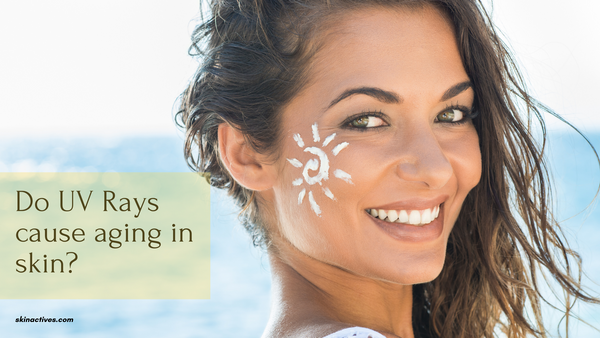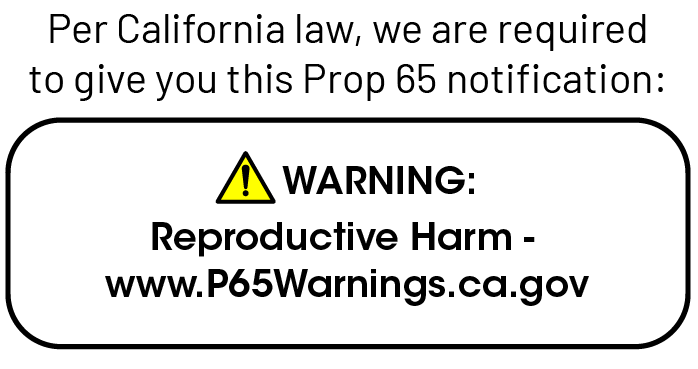How Does Sunscreen Prevent Sun Damage? | Skin Actives
Posted by Dr. Hannah Sivak and Brendan Leonard on Jul 21st 2020
It’s the time of year when most of us are experiencing the long days of summer. Our culture has taken shape around this season and given us lots of reasons to be out in the sun this time of year.
But we may hear different, seemingly contradictory, things about our health as it relates to exposure to ultraviolet light. Isn’t getting a certain amount of sun sort of good for us, and healthy? What about plants, they seem fine in the sun. What if I’m stuck inside most of the day anyway, do I really need to wear sunscreen?
These are all good questions and below, we’ll endeavour to give you some clarity on how too much sun causes skin damage.
What Makes Light Harmful to Skin?
You actually do need to get some light to be healthy. UV light penetrates your skin and tells your body to begin producing the components necessary to make vitamin D and put it to work in the parts of your body that you need. The catch is, this is a very small amount of light! You certainly don’t need to sunbathe to get it. You can have too much of one thing, and the excesses beyond this small amount can actually add up to causing skin damage. Blocking UV rays will add years of life to your skin as long as you take the time to protect it.
Sunburn is physically painful. But UV damages DNA, which encodes proteins. Melanin absorbs UV, and this excited melanin instead of dissipating the energy as heat (a benign process) reacts with another molecule, a protein for instance, and initiates a chain of events that results in the formation of Reactive Oxygen Species (ROS*).
When ROS* become involved, the damage goes on and on because ROS* initiate bio-chemical chain reactions. You don’t want your DNA, the very building blocks of your body, to be treated this way. Keep accumulating DNA mutations and, over time, your cells will begin to degenerate in ways that can lead to cancer.
What Can You Do about Sun Damage?
Prevention is the key. Always start with the combination of sunscreen and limiting your exposure to the sun. The main agent of skin aging is UV radiation. Sunscreen is a lotion that contains ingredients capable of absorbing or reflecting UV radiation before it reaches the skin thus preventing burning and photoaging.
There are Two Types of Sunscreen:
Physical - These types of sunscreen usually manifest as zinc oxide and titanium dioxide, which stay on the surface of the skin and mainly deflect the UV light. They are like mirrors on your skin, reflecting harmful rays back away from you.
Chemical - Chemical sunblocks work differently. Instead of reflecting, they absorb UV and dissipate the energy in a less damaging way, such as heat.
So even if you are inside most, or all of the day, and even if you’re wearing sunscreen, you are still getting exposed to ultraviolet light. No sunscreen can block all UV light! And the amount that gets through is more than enough to trigger the process in your cells that creates vitamin D and circulated it throughout your body.
The Skin Actives Way:
We have two great sun-blocking products that we think work very well together.
The first is our Anti-Aging Day Cream with SPF 30. This is the product that kicked off our entire Advanced Ageless line! It provides something most other sunscreens do not: anti-aging action! It uses the power of sea kelp coral and our patented blend of ROS* fighting antioxidants to reverse the signs of aging while protecting your skin from harmful UV. It’s light and transparent and feels great on your face. Use it to seal in your morning skin care routine. The best part about it is that it is based entirely on zinc oxide to reflect light. This is an entirely mineral sunscreen! We think that with its light, airy feeling, you’ll agree that there is nothing else like it on the market in this category!
Next we have our Advanced Protection SPF 30 Sunscreen. This sunscreen is a bit more traditional, providing both chemical and physical protection. It’s great for the exposed parts of your arms and legs, so you can get protected before leaving home!
Please, please, please! Remember to wear sunscreen! Ours, someone else’s, or ANY sunscreen that provides substantial protection. We care more about your safety than selling you products. Remember that sunscreens do not prevent damage completely, but they do extend the time of exposure before your skin gets damaged.

